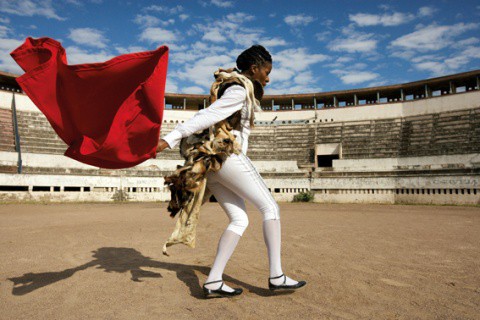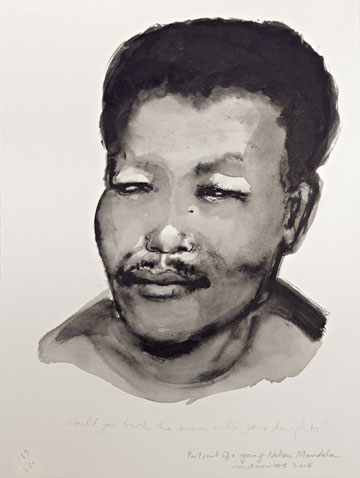MEDIA STATEMENT BY MR PAUL MASHATILE, MINISTER OF ARTS AND CULTURE, JOHANNESBURG, 4TH APRIL 2011:
artsouthafrica issues
“Programme Director
Our stakeholders present here today
Members of the Media
Ladies and Gentlemen:
FREEDOM MONTH
This year marks the 17th year of freedom and democracy in our country.
In celebration of this important milestone in the history of our country, the Department of Arts and Culture working together with other government departments and provinces has planned a number of activities to be rolled out throughout April as part of Freedom Month celebrations.
Activities for Freedom Month will include social cohesion dialogues to be held in the City of Tshwane, a wreath laying ceremony at the Solomon Mahlangu Memorial Square and a Commemorative rally in Moretele Park.
These activities will culminate in the National Freedom Day celebrations to be held at the Union Buildings in Pretoria on Wednesday 27 April 2011.
This event will be addressed by President Jacob Zuma and will include a full military parade and a cultural programme, celebrating our country’s diverse cultures.
The theme for this year’s celebrations is “Working together to unite the nation, promote democracy and protect freedom.”
This theme is a call to all South Africans to work together to build the South African nation, united in its diversity.
We call on all South Africans to be part of the Freedom Month celebrations.
As we celebrate Freedom Month, we will be celebrating the work we have done over the past 17 years to deepen democracy and freedom in our country.
We will be celebrating the progress we are making in building a National Democratic Society; a society that is united, democratic, non racial, non sexist and prosperous.
As part of promoting democracy and protecting freedom we urge all South Africans to participate in the local government elections to be held next month.
This we say because elections are a crucial element of promoting democracy and protecting freedom.
THE ARTS AND CULTURE MANDATE
The Department of Arts and Culture is tasked with the responsibility to develop and preserve South Africa’s culture, to ensure social cohesion and nation-building.
One of the critical areas of focus for the Department as it delivers on its mandate is to unleash the potential of the cultural and creative industries to contribute to economic growth and job creation.
This is particularly important in light of the recent pronouncement by President Zuma in the State of the Nation Address that the primary focus of the work of government during this period is on job creation.
It is also our view that the cultural and creative industries have a meaningful contribution to make towards the achievement of the goals of the New Growth Path; specifically the creation of 5 million jobs within the next ten years.
THE ROLE OF ARTS, CULTURE AND HERITAGE IN THE ECONOMY AND IN JOB CREATION.
Research in many parts of the world, including in countries such as Canada, United Kingdom and India, shows that the cultural and creative industries are a major contributor to economic growth and job creation.
This has earned the sector the title of being referred to as the “Golden economy”.
In line with this international trend, there is also growing consensus in our country that the cultural and creative industries are a significant contributor to economic growth and job creation.
At its February Lekgotla, Cabinet identified the cultural and creative industries as one of the drivers of economic growth and job creation.
As the President indicated during the State of the Nation Address; the craft sector alone contributes more that R 2 billion to our country’s Gross Domestic Product.
In addition this sector provides jobs and income for approximately 38 000 people through an estimated 7 000 small enterprises. (Source: DTI).
We estimate that Technical Services, which include stage construction, lighting and sound engineering, are worth R7 billion per annum.
Last year a research report indicated that the Cape Town International Jazz Festival contributed more than R475 million to the economy of Cape Town and created a total of 2 000 jobs.
Judging from this year’s attendance and enthusiasm at the Cape Town International Jazz Festival, I have no doubt that even these figures will be surpassed.
Programme Director, these (preliminary) numbers point to the vast potential of the Golden economy in South Africa.
Yet the sector generally is not considered to be visible.
There is also a need for research in the sector to be collated and analyzed to provide an accurate picture of the sector’s contribution to the national economy.
Overlapping functions between role players need to be addressed as soon as possible.
It is therefore necessary that a unified framework be adopted guide interventions in the sector.
It is for this reason that in November this year I appointed a team to draft a strategy on how to unleash the potential of the cultural and creative industries to contribute to economic growth and job creation.
After a process of consultation with our agencies and provincial departments of Arts and Culture, we are delighted to announce that the strategy is now ready to be presented to all our stakeholders.
The Strategy will be presented at a National Summit on the Cultural and Creative Industries to be held from the 14th to the 15th of April this year, at the Newton Cultural Precinct in Johannesburg.
Out of this Summit we hope to emerge with a number of resolutions that we will implement collectively with our stakeholders with a view to strengthen the contribution of the creative and cultural industries in the economy.
Most importantly this Strategy will spell out in detail how the sector will contribute to the national effort to create 5 million jobs within the next ten years as outlined in the New Growth Path.
NATIONAL SKILLS ACADEMY
Programme Director, linked to the development of the strategy, is the proposed establishment of the National Skills Academy for the Arts.
The Academy will coordinate and integrate the various arts training initiatives in the country.
It will strengthen efforts to build the necessary skills base required to ensure sustainability of the sector.
The Academy, will become a “Center of Excellence” responsible for producing the best in our country that are capable of competing successfully on the world stage.
The establishment of the Academy will require that we work with other National Departments and provinces.
In this regard, we are collaborating with the Department of Basic Education to include in the curriculum, visual arts and aspects of drama including providing learners a chance to learn to play a musical instrument.
We are also engaging with the Department of Higher Education to ensure co-ordination and collaboration amoung all training institutions in the arts, culture and heritage sector.
We look forward to working with all of you as we prepare for this ground breaking Summit and as we implement its resolutions.
Thank you.”



